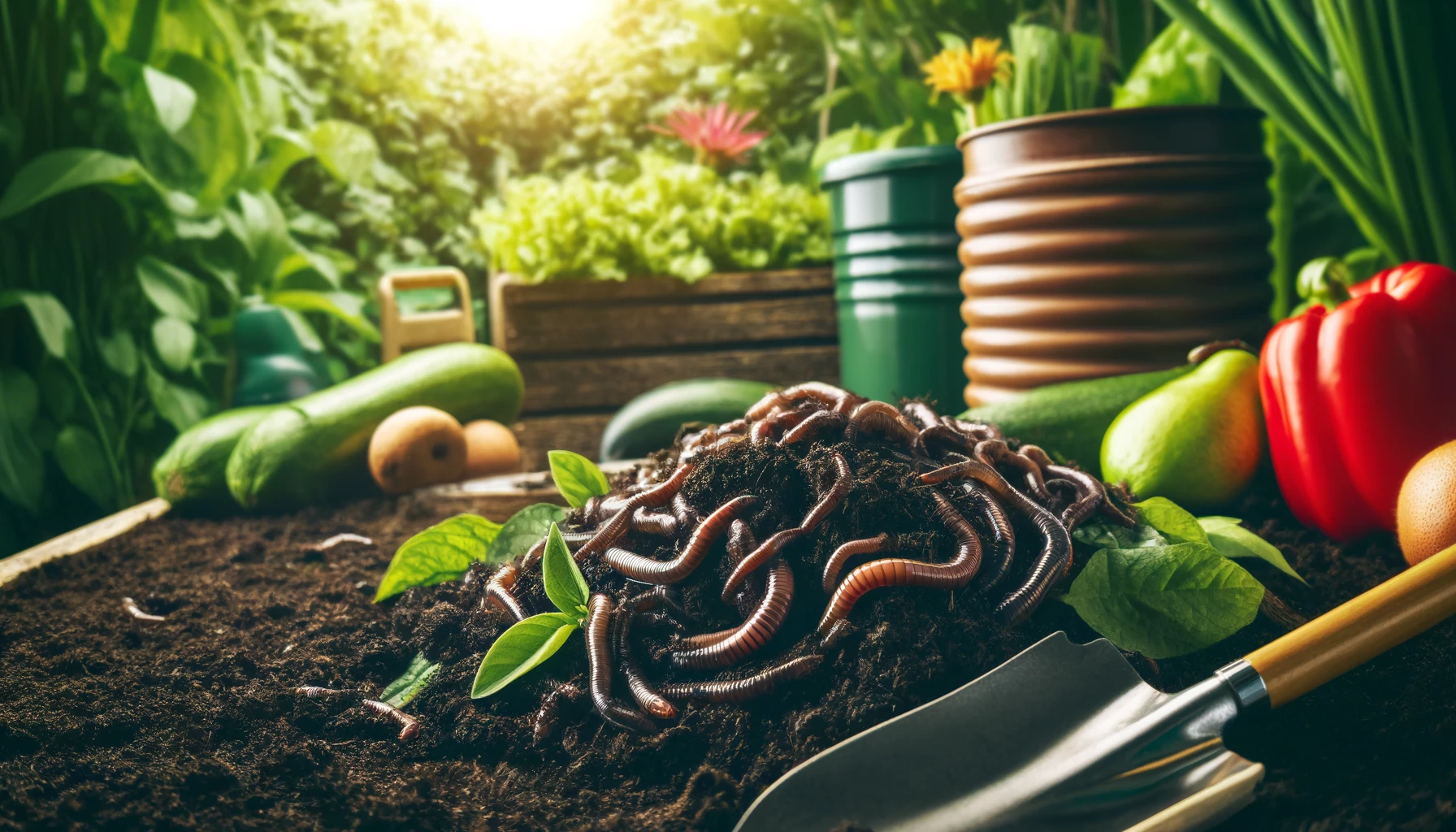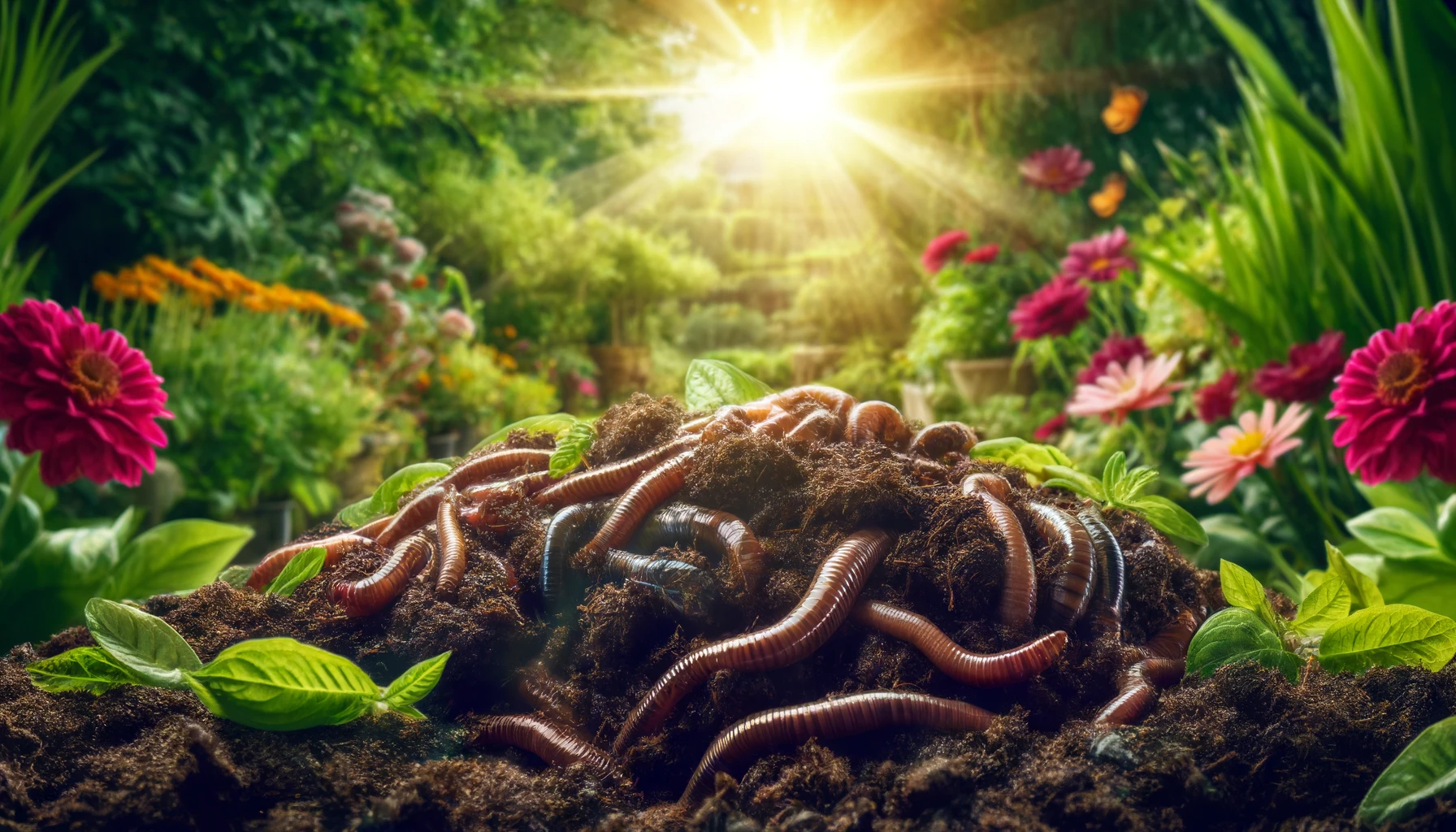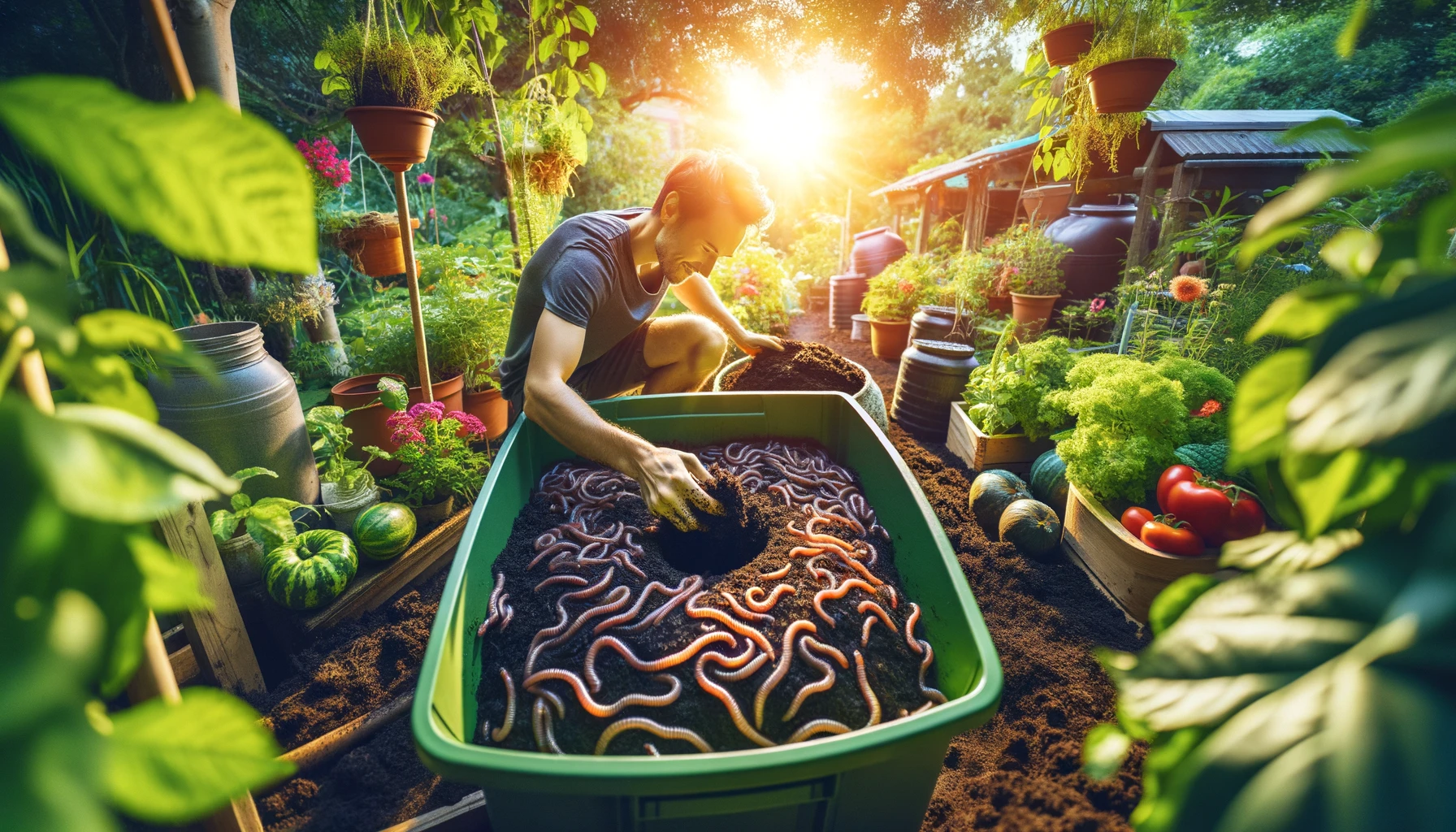The Benefits of Composting with Worms

Composting is a fantastic way to recycle organic waste and enrich your soil. But did you know that using composting worms, also known as vermiculture, can significantly enhance the composting process? At Terry’s Worm Store, we are passionate about promoting sustainable practices, and vermiculture is one of our favorite methods. In this blog, we’ll explore the numerous benefits of composting with worms and how you can get started.
1. Faster Composting Process
One of the most significant advantages of using composting worms is the speed at which they break down organic matter. Worms consume and process waste much quicker than traditional composting methods. This means you can turn your kitchen scraps, garden waste, and other organic materials into rich, nutrient-dense compost in a shorter amount of time.
2. Higher Nutrient Content
The compost produced by worms, known as worm castings or vermicast, is incredibly rich in nutrients. Worm castings contain higher levels of nitrogen, phosphorus, potassium, and other essential minerals compared to regular compost. This nutrient-rich compost can significantly improve soil health and boost plant growth.
3. Reduces Waste
Vermiculture is an excellent way to reduce household waste. Instead of sending kitchen scraps and garden clippings to the landfill, you can feed them to your worms. This not only helps reduce the amount of waste you produce but also minimizes your carbon footprint, contributing to a more sustainable environment.
4. Improves Soil Structure
The compost produced by worms is not only rich in nutrients but also helps improve soil structure. Worm castings enhance soil aeration and water retention, creating a better growing environment for plants. This improved soil structure leads to healthier plants with stronger root systems.
5. Easy and Low Maintenance
Composting with worms is surprisingly easy and requires minimal maintenance. All you need is a worm bin, bedding material, and a supply of organic waste. Worms are incredibly efficient workers and do not require daily attention. As long as they have a moist, dark environment and a steady supply of food, they will thrive and produce high-quality compost.

Getting Started with Vermiculture
Starting your own vermiculture system is simple. Here are the basic steps:
- Set Up a Worm Bin: Choose a bin with good ventilation and drainage. You can buy a ready-made worm bin or make one yourself.
- Add Bedding: Fill the bin with bedding material such as shredded newspaper, cardboard, or coconut coir. Moisten the bedding to create a comfortable environment for the worms.
- Introduce the Worms: Add composting worms, such as red wigglers, to the bin. These worms are excellent composters and thrive in bin environments.
- Feed the Worms: Start adding your kitchen scraps and garden waste to the bin. Avoid adding meat, dairy, and oily foods, as these can attract pests and create odors.
- Maintain the Bin: Keep the bin in a cool, dark place and maintain the moisture level. Check on the worms periodically and add more bedding and food as needed.

Conclusion
Composting with worms is a rewarding and eco-friendly way to recycle organic waste and create nutrient-rich compost for your garden. By incorporating vermiculture into your composting routine, you can enjoy faster composting, reduced waste, and healthier soil. At Terry’s Worm Store, we provide everything you need to get started with vermiculture, from high-quality composting worms to expert advice. Happy composting!

